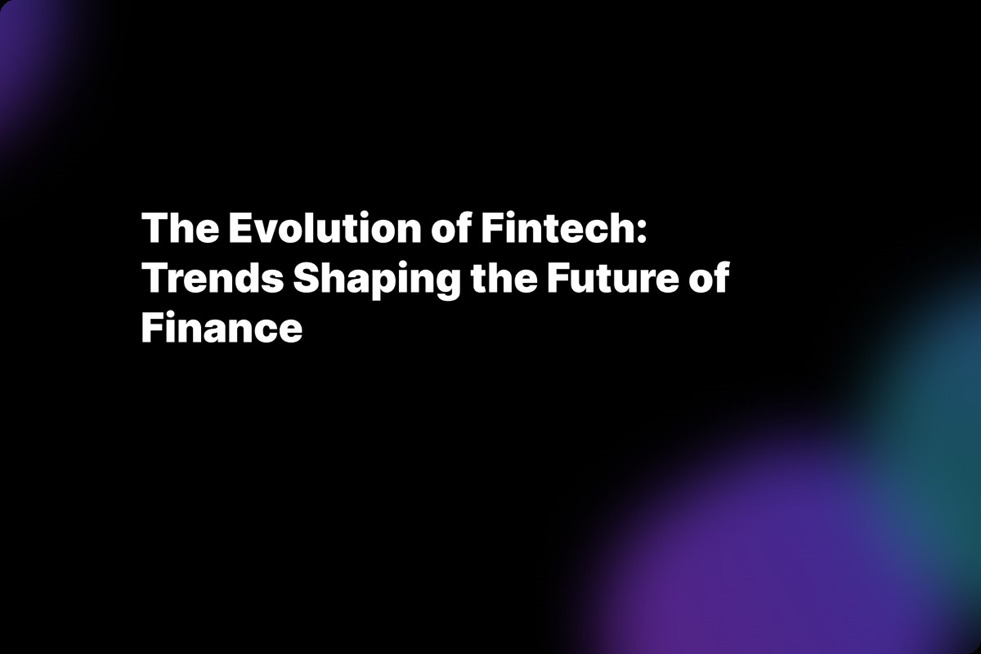The Evolution of Fintech: Trends Shaping the Future of Finance

Are you navigating the rapidly evolving landscape of financial technology and seeking insights into the latest trends shaping the future of finance? From the transformative impact of mobile banking on financial accessibility to the revolutionary role of blockchain in enhancing security and transparency, the fintech sector is undergoing unprecedented changes. Advances in artificial intelligence and machine learning are personalizing financial services in ways previously unimaginable, while peer-to-peer payment platforms are simplifying transactions like never before.
Moreover, regulatory technology (RegTech) is emerging as a key player in ensuring compliance through innovative solutions. As we delve into the future of fintech, understanding these developments and their implications is crucial for staying ahead in the dynamic world of finance. Join us as we explore the cutting-edge trends and predictions that are defining the next era of financial technology, positioning you at the forefront of this exciting journey.
The Rise of Mobile Banking: A New Era in Financial Accessibility
The advent of mobile banking has revolutionized the way consumers interact with their finances, marking a significant shift towards digital-first financial services. This transformation is not merely about convenience; it’s about expanding financial accessibility to underserved populations globally. With the proliferation of smartphones, mobile banking apps have become a critical tool for everyday financial transactions, from checking account balances to sending money abroad. The impact of this shift is profound, offering users 24/7 access to their finances, reducing the need for physical bank branches, and democratizing access to financial services.
When comparing traditional banking to mobile banking, the differences in accessibility and convenience become starkly apparent. For instance, a comparison between Bank of America’s traditional banking services and its mobile app reveals significant disparities in user engagement and satisfaction. According to a 2022 survey, mobile app users reported higher satisfaction rates, citing the ease of use and instant access to services. Specifically, the mobile app boasted an average transaction time of under 2 minutes for tasks such as transferring funds or paying bills, compared to the 15 minutes or more that might be required to complete the same tasks via a bank visit or even through online banking. Furthermore, mobile banking apps like Chime and Revolut have pushed the envelope by offering services with no monthly fees, free ATM withdrawals, and real-time transaction notifications, setting a new standard for financial management that traditional banks are now striving to meet.
Blockchain Technology: Revolutionizing Security and Transparency in Finance
Embracing blockchain technology has become a pivotal strategy for financial institutions aiming to enhance security and transparency. This innovative approach not only streamlines operations but also significantly reduces the risk of fraud, ensuring a more robust financial ecosystem. Key trends shaping the future of finance through blockchain include:
- Decentralization: By eliminating central points of failure, blockchain offers a more resilient and reliable financial infrastructure.
- Smart Contracts: These self-executing contracts with the terms of the agreement directly written into lines of code, automate and secure financial transactions in a way that is transparent and immutable.
- Tokenization: Converting assets into digital tokens not only enhances liquidity but also makes it easier to divide and trade assets in a secure environment.
- Improved Compliance: Blockchain’s inherent characteristics facilitate adherence to regulatory requirements, simplifying compliance through transparent and verifiable transactions.
These advancements are not just reshaping how transactions are conducted but are also setting new standards for trust and efficiency in the financial sector.
Artificial Intelligence and Machine Learning: Personalizing Financial Services
As the financial industry evolves, Artificial Intelligence (AI) and Machine Learning (ML) stand at the forefront of transforming customer experiences. These technologies are not just reshaping how services are delivered but are also setting new standards for personalization in finance. By analyzing vast amounts of data, AI and ML enable financial institutions to offer customized solutions that meet individual customer needs, enhancing satisfaction and loyalty. For instance, AI-driven chatbots provide 24/7 customer service, while ML algorithms help in predicting customer behavior, allowing for more targeted and efficient financial advice.
The Surge of Peer-to-Peer Payments: Redefining Money Transfers
Peer-to-peer (P2P) payment systems have revolutionized the way we think about financial transactions, offering a level of convenience and efficiency previously unimaginable. These platforms allow users to send and receive money with just a few clicks, bypassing traditional banking procedures and fees. This surge in P2P payment usage is not just a trend but a significant shift in consumer behavior, driven by the desire for instantaneous transactions and reduced costs. Key players in this space, such as PayPal, Venmo, and Zelle, have become household names, underscoring the widespread adoption of these services.
The impact of P2P payment systems extends beyond mere convenience, heralding a new era in financial inclusivity and security. Here are some critical points to consider:
- Financial Inclusivity: By eliminating the need for traditional bank accounts, P2P platforms have opened the doors to financial services for unbanked and underbanked populations.
- Enhanced Security: Advanced encryption and authentication measures protect users from fraud and theft, making P2P payments safer than ever.
- Global Reach: These systems have made international money transfers more accessible and affordable, fostering global economic connectivity.
Moreover, the integration of artificial intelligence and machine learning technologies is set to further refine the user experience, offering personalized services and predictive security measures. As we look to the future, the evolution of P2P payment systems will undoubtedly play a pivotal role in shaping the financial landscape, making it more inclusive, secure, and interconnected.
RegTech: Navigating Compliance Through Innovation
Financial institutions are increasingly leveraging Regulatory Technology (RegTech) to streamline compliance processes, reduce risks, and enhance operational efficiencies. This innovative approach to compliance is not just about keeping pace with regulatory changes but also about gaining a competitive edge. Experts in the field suggest that integrating RegTech solutions can significantly cut down on manual processes, reduce the likelihood of human error, and improve the accuracy of compliance reporting. This shift towards automation and data analytics is reshaping how companies approach regulatory challenges, making compliance a key driver of innovation rather than a cumbersome obligation.
With the landscape of financial regulations becoming more complex, the role of RegTech has never been more critical. Industry leaders emphasize the importance of adopting advanced analytics, artificial intelligence (AI), and machine learning (ML) technologies to not only meet current compliance requirements but also anticipate future regulatory changes. This proactive approach enables financial institutions to stay ahead of the curve, ensuring that they are not only compliant but also positioned to take advantage of new opportunities that arise from regulatory developments. By harnessing the power of RegTech, companies can transform compliance from a back-office function into a strategic asset, driving innovation and growth in the financial sector.
The Future of Fintech: Predictions and Emerging Trends
With the rapid advancement of technology, the fintech sector is poised for significant transformation. One of the most notable trends is the integration of artificial intelligence (AI) and machine learning (ML) into financial services. These technologies are not only automating traditional processes but are also enhancing customer experiences by providing personalized financial advice and improving security through advanced fraud detection algorithms. This shift towards AI-driven solutions is expected to redefine operational efficiencies and customer interactions in the fintech industry.
Another emerging trend is the rise of digital currencies and blockchain technology. Central banks around the world are exploring or have already implemented digital versions of their currencies, signaling a move towards a more digitalized financial ecosystem. This trend is likely to accelerate the adoption of blockchain technology, offering unprecedented levels of transparency, security, and efficiency in financial transactions. The potential for blockchain to disrupt traditional banking extends beyond cryptocurrencies, touching aspects such as cross-border payments, smart contracts, and identity verification processes.
Looking ahead, the convergence of fintech with sustainability and green finance is becoming increasingly prominent. As global awareness and regulatory pressures around environmental issues grow, fintech innovations are playing a crucial role in promoting sustainable finance. This includes the development of platforms for carbon credit trading, green bonds, and investments in renewable energy projects. The integration of sustainability into fintech not only addresses pressing environmental challenges but also opens up new market opportunities, driving the future growth of the sector. In conclusion, these trends underscore the dynamic nature of fintech and its potential to shape a more efficient, secure, and inclusive financial landscape.





